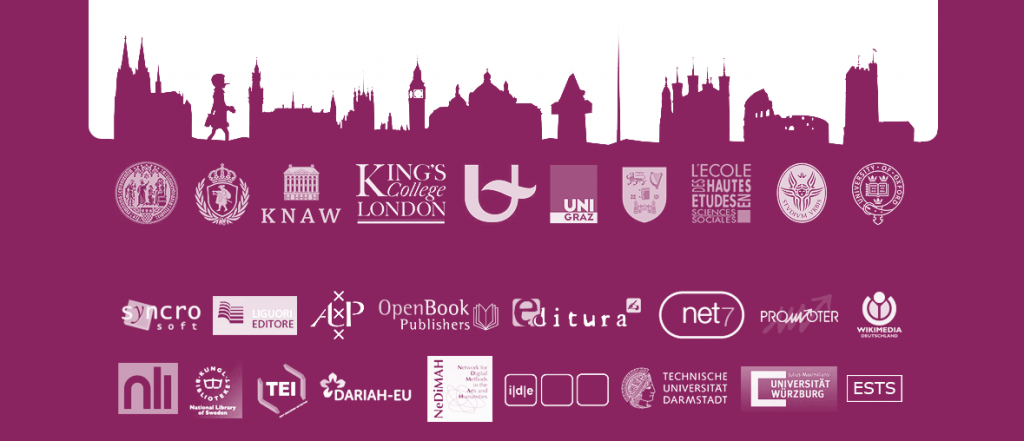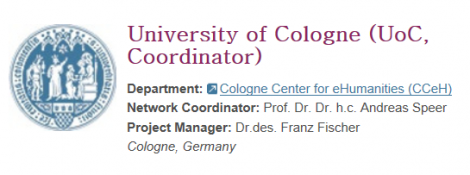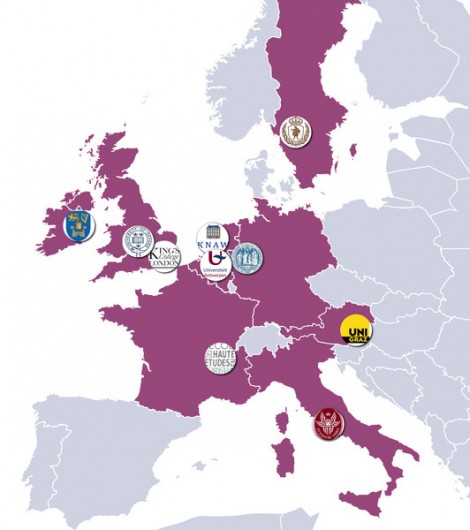
On 30th September and 1st October in Rome, the kick off meeting of project DiXiT was held at the premises of Sapienza University in Rome.
DiXiT is an international network of high-profile institutions from the public and the private sector that are actively involved in the creation and publication of digital scholarly editions.

Digital scholarly editing represents one of the most important branches of Digital Humanities. Theories, concepts and practices designed for editing in a digital environment have deeply influenced the development of Digital Humanities as a discipline. The achievements shown by recent digital scholarly editions demonstrate some of the potential for innovation in the digital medium including their openness and exploratory nature. These projects have developed a very wide range of editorial products.
DiXiT offers a coordinated training and research programme for 12 early stage researchers and 5 experienced researchers in the multi-disciplinary skills, technologies, theories, and methods of digital scholarly editing.
 The consortium is composed of important universities as full partners, coordinated by University of Cologne, plus associated partners that provide valuable scientists in charge.
The consortium is composed of important universities as full partners, coordinated by University of Cologne, plus associated partners that provide valuable scientists in charge.
DiXiT is funded under Marie Curie Actions within the European Commission’s 7th Framework Programme and runs from September 2013 until August 2017.
Official website: dixit.uni-koeln.de
Partners:
University of Cologne (UoC, Coordinator) – Cologne, Germany
Department: Cologne Center for eHumanities (CCeH)
Network Coordinator: Prof. Dr. Dr. h.c. Andreas Speer
Project Manager: Dr. Franz Fischer
University of Borås (HB) – Boras, Sweden
Department: Swedish School of Library and Information
Science Scientist-in-Charge: Dr. Mats Dahlström
Koninklijke Nederlandse Akademie van Wetenschappen (KNAW) – Den Haag, Netherlands
Department: Huygens Institute for the History of the Netherlands (Huygens ING), Department of Textual Scholarship and Literary Studies
Scientist-in-Charge: Prof. Dr. Karina van Dalen-Oskam
King’s College London (KCL) – London, United Kingdom
Department: Department of Digital Humanities
Scientist-in-Charge: Dr. Elena Pierazzo
University of Antwerp (UA) – Antwerpen, Belgium
Department: Centre for Manuscript Genetics (CMG)
Scientist-in-Charge: Prof. Dr. Dirk van Hulle
Graz University (GU) – Graz, Austria
Department: Center for Information Modelling in the Humanities
Scientist-in-Charge: Ass. Prof. Dr. Hubert Stigler
Trinity College Dublin (TCD) – Dublin, Ireland
Department: School of English
Scientist-in-Charge: Dr. Susan Schreibman
École des Haute Études en Sci-ences Sociales (EHESS) – Lyon, France
Department: Pôle de Lyon
Scientist-in-Charge: Marjorie Burghart
Università di Roma ‘La Sapienza’ (R1) – Rome, Italy
Department: DigiLab
Scientist-in-Charge: Dr. Domenico Fiormonte (Università Roma Tre)
University of Oxford (UOX) – Oxford, United Kingdom
Department: IT Services (OXIT)
Scientist-in-Charge: Dr. James Cummings



 If you have interesting news and events to point out in the field of digital cultural heritage, we are waiting for your contribution.
If you have interesting news and events to point out in the field of digital cultural heritage, we are waiting for your contribution.
























